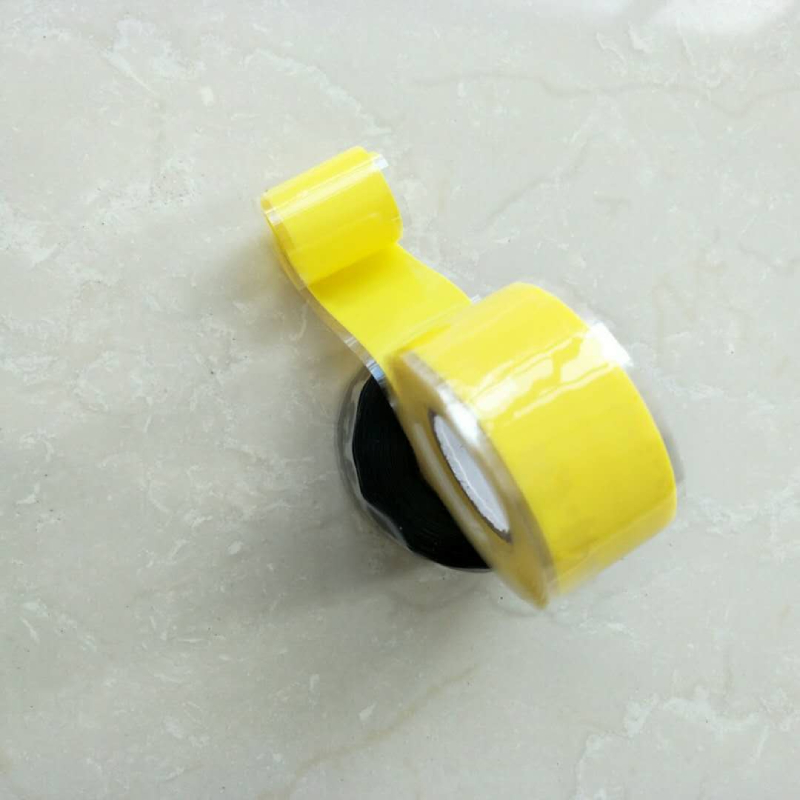The Importance of Rubber Tape for Electrical Applications
In the world of electrical installations and repairs, safety and efficiency are paramount. One product that has gained significant attention in this regard is rubber tape. Commonly used in various electrical applications, rubber tape offers a unique combination of properties that make it an indispensable tool for both professional electricians and DIY enthusiasts alike.
What is Rubber Tape?
Rubber tape is a type of self-fusing tape made from a highly elastic rubber compound. Unlike traditional adhesive tapes, rubber tape adheres to itself rather than to the surface it’s applied to. This self-fusing property allows it to create a strong, waterproof seal that can withstand heat, moisture, and the rigors of electrical applications. Its flexibility and durability make it an ideal choice for insulating, repairing, and protecting electrical components.
Key Features and Benefits
1. Electrical Insulation One of the primary uses of rubber tape is to provide electrical insulation. It can effectively insulate live wires in electrical systems, minimizing the risk of short circuits and electric shocks. The tape can also withstand high voltage, making it suitable for a wide range of electrical applications.
2. Waterproof and Weather Resistant Rubber tape is inherently waterproof, which is crucial for outdoor electrical installations or applications exposed to moisture. Its resistance to weather elements helps protect electrical connections and wiring from corrosion and deterioration, extending the lifespan of electrical systems.
3. Self-Fusing Capability The self-fusing nature of rubber tape means it bonds to itself without the need for adhesives or glue. This feature enhances the tape’s integrity, allowing it to maintain a secure seal even under stress. When wrapped around a wire or connection point, it forms a solid, unified layer that can effectively resist environmental factors.
4. Temperature Resistance Rubber tape maintains its flexibility and integrity across a broad temperature range. This feature allows it to perform effectively in both hot and cold conditions, making it suitable for various environments, from industrial settings to residential spaces.
5. Versatility Beyond electrical applications, rubber tape is also used in plumbing, automotive, and various industrial uses. Its ability to insulate, protect, and seal makes it a multifunctional tool that can tackle a variety of repair and maintenance jobs.
rubber tape for electrical

How to Use Rubber Tape
Using rubber tape is straightforward, but ensuring proper application is key to achieving the best results
. Here’s a simple guide on how to effectively use rubber tape for electrical purposes1. Preparation Before applying the tape, clean the area around the wire or connection point. Remove any dust, oil, or moisture to ensure a strong seal.
2. Starting the Application Begin wrapping the tape around the area, ensuring that the initial turn overlaps onto the wire itself. Smoothly stretch the tape as you wrap it to ensure that it sticks to itself and creates a solid bond.
3. Overlap Layers For enhanced protection and insulation, overlap the tape as you wrap it. A 50% overlap is recommended to ensure complete coverage and effective insulation.
4. Finish Securely After several layers, cut the tape and press the end down firmly against the previous layer to ensure a tight seal.
5. Inspect the Application Once finished, visually inspect the wrapped area for any gaps or inconsistencies that may compromise the insulation.
Conclusion
Rubber tape is an essential product in the arsenal of tools for anyone working with electrical systems. Its unique properties, including self-fusing capability, moisture resistance, and temperature flexibility, make it a reliable choice for insulating and protecting electrical connections. Whether you are a professional electrician or a hobbyist tackling DIY projects, understanding the applications and benefits of rubber tape is crucial to ensuring a safe and efficient electrical workspace. Investing in high-quality rubber tape can significantly enhance the durability and reliability of your electrical installations, leading to safer environments and more successful projects.
-
XIANGFAN Rubber Tape-Ultimate Solutions for All Your Insulation NeedsNewsJun.24,2025
-
XIANGFAN Rubber Tape-Protection for Industrial and Residential ApplicationsNewsJun.24,2025
-
XIANGFAN Rubber Tape: Superior Safety and Sealing for Demanding EnvironmentsNewsJun.24,2025
-
XIANGFAN Rubber Tape: Reliable Solutions for Every Electrical ChallengeNewsJun.24,2025
-
XIANGFAN Electrical & Industrial Tape: Powering Reliability Across IndustriesNewsJun.24,2025
-
XIANGFAN Electrical & Industrial Tape: Excellence in Every ApplicationNewsJun.24,2025
